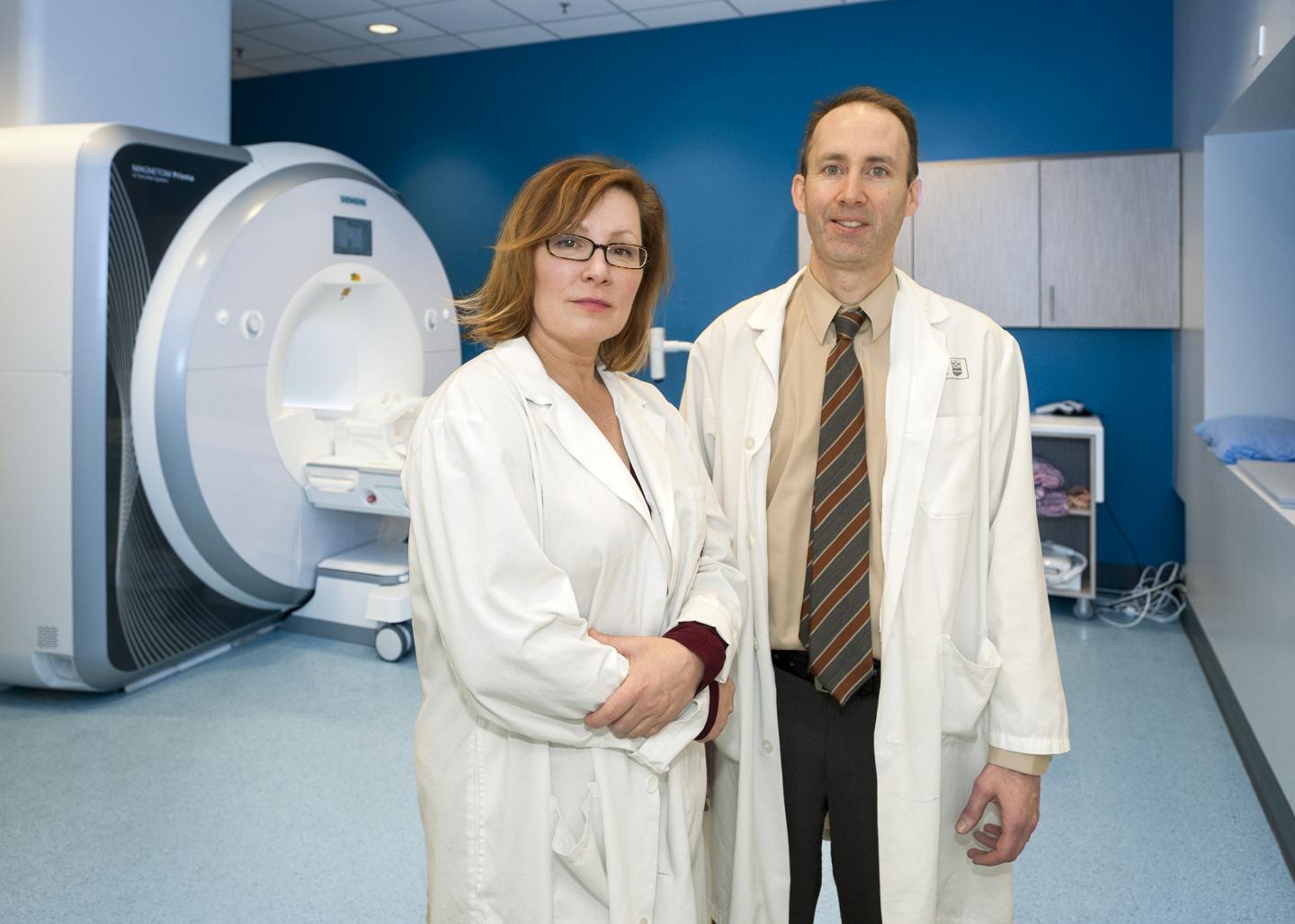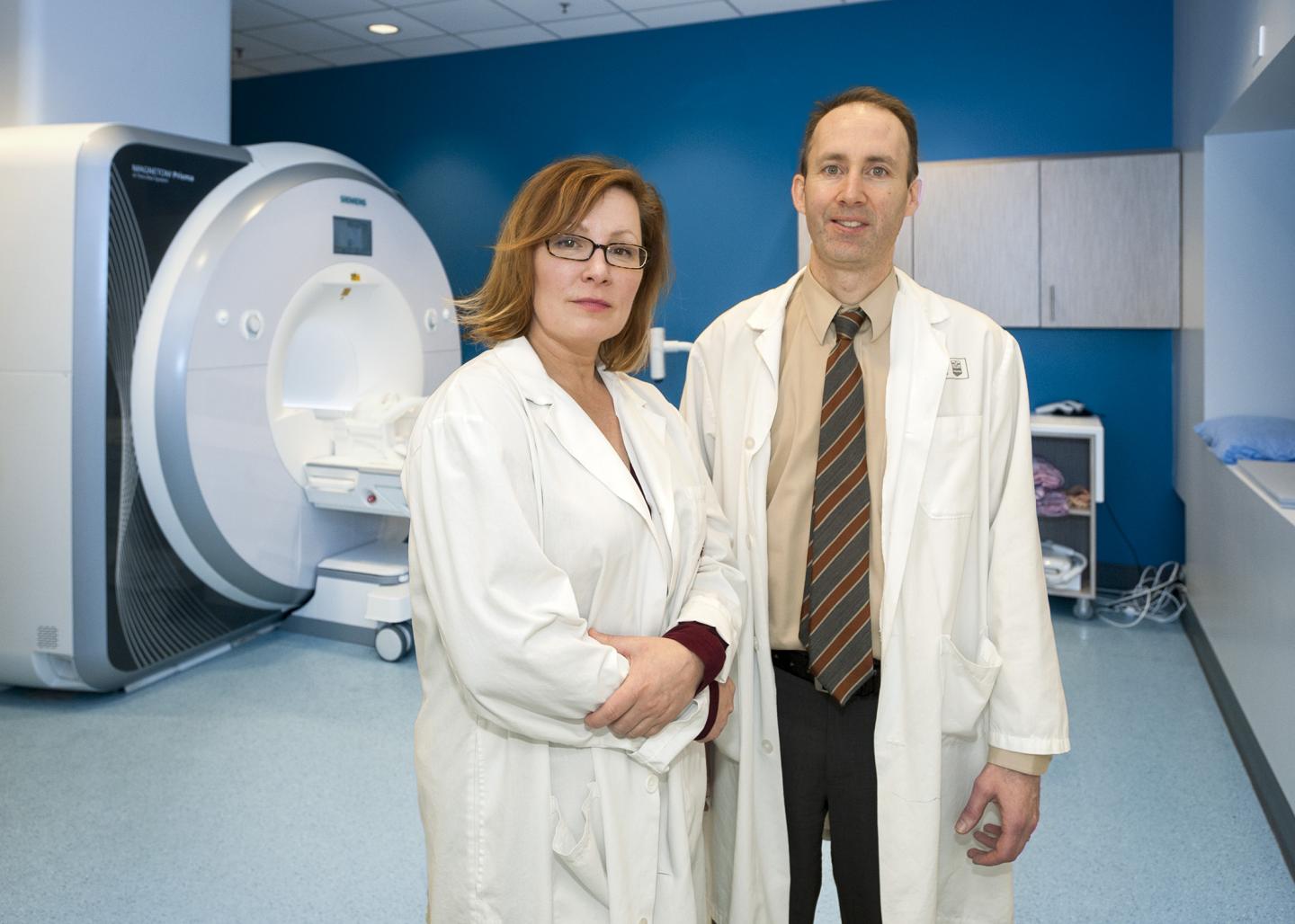
Credit: University of Alberta
Heart medication taken in combination with chemotherapy reduces the risk of serious cardiovascular damage in patients with early-stage breast cancer, according to results from a new landmark clinical trial.
Existing research has shown some cancer therapies such as Herceptin greatly improve survival rates for early-stage breast cancer, but come with a fivefold risk of heart failure — a devastating condition as life-threatening as the cancer itself.
A new five-year study, led by researchers at the University of Alberta and Alberta Health Services and funded by the Canadian Institutes of Health Research (CIHR) and Alberta Cancer Foundation, shows that two kinds of heart medications, beta blockers and ACE inhibitors, effectively prevent a drop in heart function from cancer treatment.
"We think this is practice-changing," said Edith Pituskin, co-investigator of the MANTICORE trial. "This will improve the safety of the cancer treatment that we provide."
Pituskin, an assistant professor in the Faculty of Nursing and Faculty of Medicine & Dentistry at the U of A, published their findings Nov. 28 in the Journal of Clinical Oncology.
In the double-blind trial, 100 patients from Alberta and Manitoba with early-stage breast cancer were selected at random to receive either a beta blocker, ACE inhibitor or placebo for one year. Beta blockers and ACE inhibitors are drugs used to treat several conditions, including heart failure.
Cardiac MRI images taken over a two-year period showed that patients who received the beta blockers showed fewer signs of heart weakening than the placebo group. The ACE inhibitor drug also had heart protection effects.
Study lead Ian Paterson, a cardiologist at the Mazankowski Alberta Heart Institute and associate professor with the U of A's Department of Medicine, said these medications not only safeguard against damage to the heart, but may improve breast cancer survival rates by limiting interruptions to chemotherapy treatment. Any time a patient shows signs of heart weakening, he said, chemotherapy is stopped immediately, sometimes for a month or two months until heart function returns to normal.
"We are aiming for two outcomes for these patients–we're hoping to prevent heart failure and we're hoping for them to receive all the chemotherapy that they are meant to get, when they are supposed to get it–to improve their odds of remission and survival."
Family history a concern for patient
Patients with heart failure often experience fatigue, shortness of breath or even death, making it "an equally devastating disease with worse prognosis than breast cancer," Paterson said.
Brenda Skanes has a history of cardiovascular problems in her family–her mom died of a stroke and her dad had a heart attack. She was eager to join the trial, both for her own health and the health of other breast cancer survivors.
"I met survivors through my journey who experienced heart complications caused by Herceptin. If they had access to this, maybe they wouldn't have those conditions now," she said. "Me participating, it's for the other survivors who are just going into treatment."
With two daughters of her own and a mother who lost her fight with colon cancer, study participant Debbie Cameron says she'd do anything to ensure prevent others from going through similar upheaval.
"My daughters are always in the back of my mind and the what ifs–if they're diagnosed, what would make their treatment safer, better," Cameron said. "Anything I could do to make this easier for anybody else or give some insight to treatment down the road was, to me, a very easy decision."
Pituskin said the study team, which also includes collaborators from the AHS Clinical Trials Unit at the Cross Cancer Institute and the University of Manitoba, represents a strong mix of research disciplines, particularly the oncology and cardiology groups. She said the results would not have been possible without funding support from CIHR and the Alberta Cancer Foundation.
"Local people in Alberta supported a study that not only Albertans benefited from, but will change, again, the way care is delivered around the world."
The results are expected to have a direct impact on clinical practice guidelines in Canada and beyond.
"Every day in Canada, around 68 women are diagnosed with breast cancer. This discovery holds real promise for improving these women's quality of life and health outcomes," said Stephen Robbins, scientific director of CIHR's Cancer Research Institute.
"We couldn't be more pleased with this return on our investment," said Myka Osinchuk, CEO of the Alberta Cancer Foundation. "This clinical research will improve treatment and make life better not only for Albertans facing cancer, but also for those around the world."
Paterson said the research team is also investigating how to prevent heart complications in patients with other cancers, noting several other therapies have been linked to heart complications.
###
Media Contact
Bryan Alary
[email protected]
780-492-0336
@ualberta
http://www.ualberta.ca
############
Story Source: Materials provided by Scienmag





